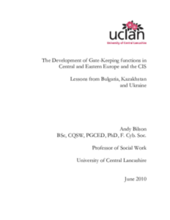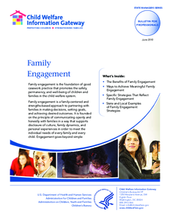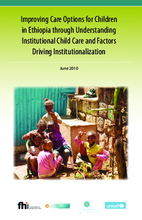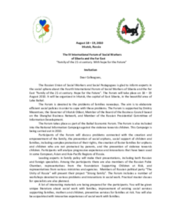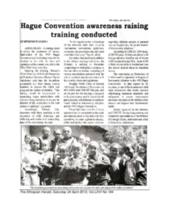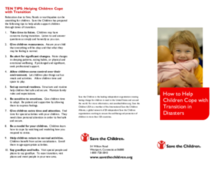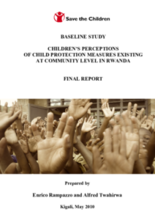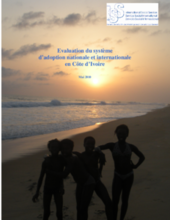Demographic Data
|
Sources: World Bank, UNDP, UNAIDS, DHS 2013 |
Displaying 13141 - 13150 of 14389
This report looks at children who enter institutional care because of being without parental care, children with disabilities, child victims of abuse and children in conflict with the law. The aim is to identify key routes through the systems in order to understand the nature of the difficulties that lead children to be placed in institutions and thereby to be able to identify alternative strategies that will better support families and children.
Family engagement is the foundation of good casework practice that promotes the safety, permanency, and well-being of children and families in the US child welfare system. This brief offers information to help State child welfare managers improve family engagement across program areas.
Findings and recommendations of the first national study of its kind in Ethiopia to study child care institutions, institutionalized children, and factors driving institutionalization.
The Russian Union of Social Workers and Social Pedagogues is glad to inform experts in the social sphere about the Fourth International Forum of Social Workers of Siberia and the Far East “Family of the 21-st century. Hope for the Future”. The Forum will take place on 18 – 19 August 2010.
This study evaluated data of 123 children with and without disabilities in residential care to determine demographic, behavioral, mental health, and educational characteristics.
Ethiopian Womens Affairs Ministry and UNICEF hosted a training for all stakeholders on the 1993 Hague Convention. The training focused on facilitating ways for the adoption of the Hague in line with the laws and regulations of Ethiopia.
A leaflet for parents on how to help your child cope during an evacuation or relocation in an emergency.
This participatory baseline is part of a multi-country study commissioned by Save the Children targeting selected areas of Rwanda, Ethiopia and North-Sudan. The purpose of the multi-country study is to address the UN Study on Violence Against Children’s recommendations and assess the role of communities in ensuring that children are protected from violence and abuse at all levels.
Ce rapport fait suite à une mission d’évaluation réalisée en Côte d’Ivoire entre le 8 et le 12 mars 2010, complétée par une compilation des informations disponibles et une analyse du cadre législatif ivoirien relatif à l’adoption. Le choix de la Côte d’Ivoire a été motivé par le fait que ce pays faisait partie des dix premiers pays d’origine des enfants adoptés en France et n’avait a l'epoque pas encore ratifié la Convention du 29 mai 1993.
This 70-page report documents the struggles of foster care youth who become homeless after turning 18, or "aging out" of the state's care, without sufficient preparation or support for adulthood

